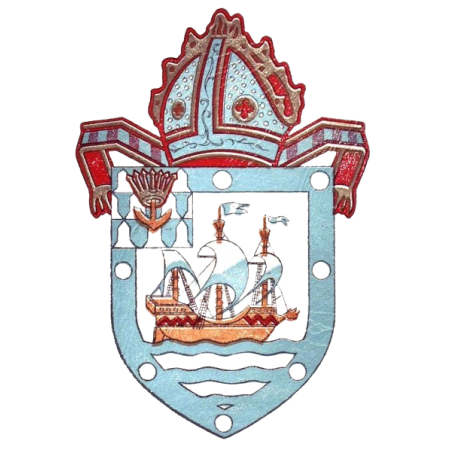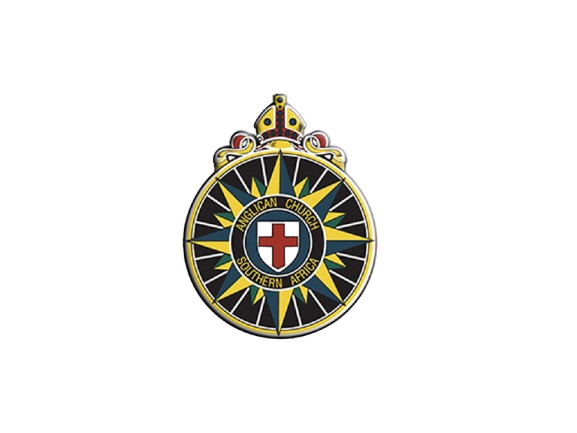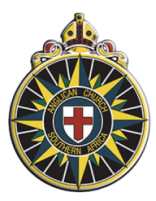
Prophetic Dissenters – Barabbas or Jesus
The Synod of Bishops met at the Lakeview Lodge Conference Centre in Benoni, Gauteng, from Saturday 22nd February until Wednesday 26th February 2025, against the sombre backdrop of the pastoral, canonical and prophetic challenges currently facing our church.
Our Synods are undergirded by prayer, silence, and liturgical worship and facilitated Bible Study. The day starts with the Eucharist, with a sermon preached by one of the Bishops. We pause at midday for the Angelus and conclude the liturgical shape of the day with Evening Prayer.
At this Synod, each day began with a Bible Study, led by Dr Jonathan May of the College of the Transfiguration in Makhanda, based on Mark 9: 14-41, which helped us explore the theme “spirituality on the way”. Bishop Luke Pato gave presentations on “Spiritual heritage and moral fortitude in SA”, the new book he has compiled with Keith de Vos and McGlory Speckman, arising from their concern that spiritual direction is diminishing, leading to a decline in our capacity to follow a moral compass. Father Thulani Joel Skhosana of St. John Vianney Seminary, Pretoria, outlined new research on Ubungoma, clarifying its role in native religion, while former Roman Catholic Archbishop Buti Tlhagale addressed us on the theology of African spirituality, arguing inter alia against the compatibility of ancestral worship with Christianity. We also heard presentations from Advocate Muzi Sikhakhane SC on his book, “Odyssey of
Liberation”, and from Dr Mamphela Ramphele OSC on the abuse crisis that faces South African society.
The presentations were delivered from a strong and authentic theological base, with theological thinking unfolding before our eyes. We were impacted in particular by the effects of the Church of England’s Makin Report, which led to our Archbishop’s appointment of a Panel of Inquiry, comprising Justice Ian Farlam and Dr Ramphele, which made important recommendations for improving our safeguarding processes. Thus, the Synod commenced with the formal inauguration of the Safe and Inclusive Church Commission as well as of new members of the Canon Law Council.
Excellent presentations on Canon Law and Safeguarding underlined the tangible synchronicity between Canon Law and Safe and Inclusive Church, which between them equip us to maintain theological and pastoral vigilance in our ministry. Dr Ramphele emphasized the need for a healing ministry in the light of societal trauma, and the Synod endorsed a series of recommendations by the Archbishop for the appointment of safeguarding officers in every parish as well as protocols for holding each of us accountable. The Bishops committed themselves to implement the recommendations in their Dioceses.
In this Synod the Bishops were once again powerfully and poignantly reminded of the breakdown of the social fabric and moral compass of our society. We are faced every day with violent crime, family breakdown, gender-based violence, the marginalization of minorities, such as people living with disabilities and the LGBTQI+ community, as well as the unfinished work of South Africa’s Truth and Reconciliation Commission.
Two catch phrases emerged in our proceedings, arising first from Advocate Sikhakhane’s striking reflection on how the notorious prisoner, Barabbas, and not Jesus, got the support of the crowd before the crucifixion. In subsequent discussion, Jesus was described as a “prophetic dissenter” who did not allow his voice to be captured but courageously spoke out against ignorance, corruption and abuse. The call echoed throughout our proceedings: Are we still trading Jesus for Barabbas? Are we still allowing Barabbas to go free to pursue his lust for power and his cruel methods of insurrection and abuse?
Informed social, political and economic and spiritual strategies for action emerged from this theological critique. The Archbishop pointed out that our experience encapsulated the “See, Judge, Act” formula – what we see enables us to make informed judgements, then to structure plans for action. The Bishops are being encouraged to establish Pastoral Teams to respond to the desperate needs of our society and, in Dr Ramphele’s words, “to become wounded healers”.
Other matters which came before Synod included:
- Approval for a Suffragan Bishop for the Diocese of Natal;
- Encouraging us to experiment with the new liturgies on our website;
- The election of a new Bishop in the Diocese of Grahamstown;
- The inclusion of the Diocese of Botswana in our Province;
- The challenges facing the Provincial Pension Fund;
- Disciplinary Canons 37-41, and the intersection of law and grace;
- Promoting a permanent diaconate and expanding Anglicare;
- Drawing up pastoral care strategies for the LGBTQI+ community;
- Provision for mediation and reconciliation in our procedures;
- Guidelines for burials in consecrated ground;
- Changes to Canons 21 and 22 which have come into effect;
- The granting of Permissions to Officiate to retired priests;
- The election of a new Bishop in the Diocese of Grahamstown; and
- Amending Canon 29 with respect to Alternate Church Wardens.
During our meeting, we were generously hosted by Bishop Charles May and the Diocese of the Highveld, and were grateful for the opportunity to worship and preach in parishes across the Diocese, as well as to visit the grave of Oliver (“OR”) Tambo, a committed Anglican, and the OR Tambo Cultural Precinct in Wattville.


